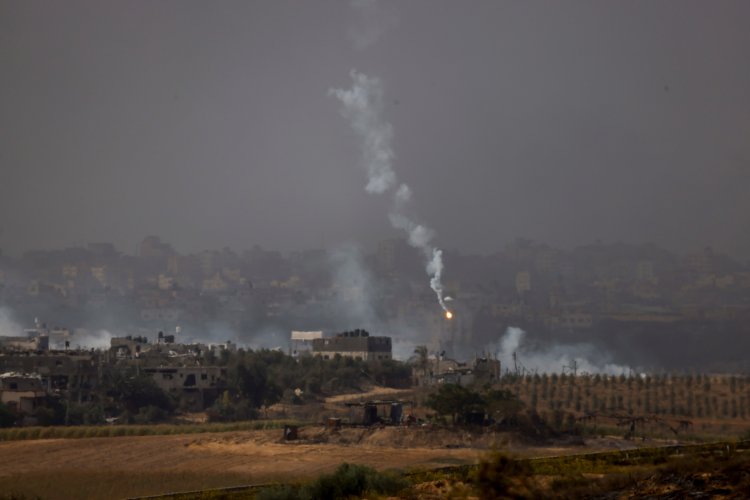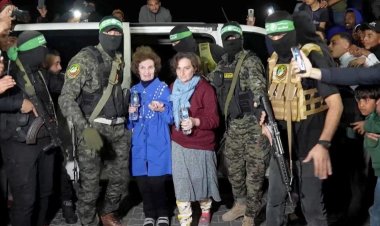Efforts to Achieve Ceasefire in Gaza: Challenges and Prospects

The Biden administration, shaken by a wave of protests on college campuses, needs Israel to reach a ceasefire agreement in Gaza. Will it succeed?
Secretary of State Antony Blinken paid a visit to Israel to push for a ceasefire agreement in Gaza. Blinken met with Netanyahu before heading to the Gaza border to inspect the flow of humanitarian aid into the besieged territory, finding the Israeli Prime Minister in a stronger and less susceptible position to pressure than he was several weeks ago.
Blinken's Objectives:
After his meeting with Netanyahu, the spokesman for the Secretary stated that they "discussed the need to avoid further escalation in the conflict and briefed the Prime Minister on ongoing efforts to ensure lasting and sustainable peace in the region. He reiterated the clear position of the United States regarding Rafah." As reported by The Wall Street Journal on May 1, 2024.
In early April 2024, the Netanyahu administration faced public rebuke from the administration of U.S. President Joe Biden due to Israel's killing of seven relief workers, which was deemed a violation of its own rules of engagement. Senate Majority Leader Chuck Schumer publicly called for the replacement of the Israeli Prime Minister.
Challenges Facing Blinken:
According to Bloomberg, while the U.S. Secretary of State works to achieve a ceasefire in Gaza during his visit to Israel, an Israeli newspaper summarized the challenges on its front page.
Now, following the Iranian attack with drones and missiles on Israeli territory, the Biden administration is under pressure, with protests spreading against Israel's war in Gaza on American university campuses. Biden needs Netanyahu to reach a ceasefire, which could alleviate internal pressure regarding the conflict.
American Efforts:
The United States seeks a prisoner swap and a temporary ceasefire leading to an end of the war. These efforts are linked to the establishment of an independent Palestinian state.
Before his meeting with Netanyahu, Blinken spoke with angry protesters outside the hotel where he was staying, demanding the return of hostages, stating, "Bringing your loved ones home is at the heart of everything we are trying to do," affirming the existence of a strong proposal on the table. It is up to Hamas to say yes, and it must deliver."
Netanyahu's Government:
National Security Advisors Tzachi Smotrich and Ben Gvir, who hold the key to the survival of Netanyahu's government, said they would withdraw if the attack on Rafah is delayed or if hundreds of Palestinian prisoners are released. Israel claims that thousands of Hamas fighters are entrenched in Rafah.
Moderates, led by Benny Gantz, who joined the war government after the October 7 attack, say the government will lose its legitimacy if it does not make every effort to release the 130 hostages, some of whom have died. Netanyahu said during his meeting with the families of the hostages and the relatives of the soldiers killed, "Israel's idea will not stop the war until all its objectives are achieved, and we will enter Rafah and eliminate Hamas battalions there with or without an agreement."
The Alleged Proposal:
According to an Israeli official quoted by Haaretz, according to the proposal that Hamas has not responded to, Tel Aviv will cease fire for several weeks, in exchange for the release of 33 hostages. Gaza residents will be allowed to return to their homes in the northern part of the Strip, and hundreds of prisoners, some convicted of murder, will be released.
According to Yedioth Ahronoth, the proposal discusses a one-year ceasefire with steps towards establishing a Palestinian state.
Military Operation in Rafah:
Meanwhile, the Israeli army continues preparations for a military operation in Rafah, where more than a million Gaza residents are sheltering. Tens of thousands of tents are being set up north of Rafah as safe zones for civilians before any invasion. However, U.S. officials say they have not seen any serious plan to protect civilians so far.
Israel waged a seven-month war after a Hamas attack that killed 1,200 people and abducted 240 others. More than 34,000 Palestinians were killed in the Israeli attack, and Israel claims that a third of them were fighters.


 Shrouq
Shrouq 












